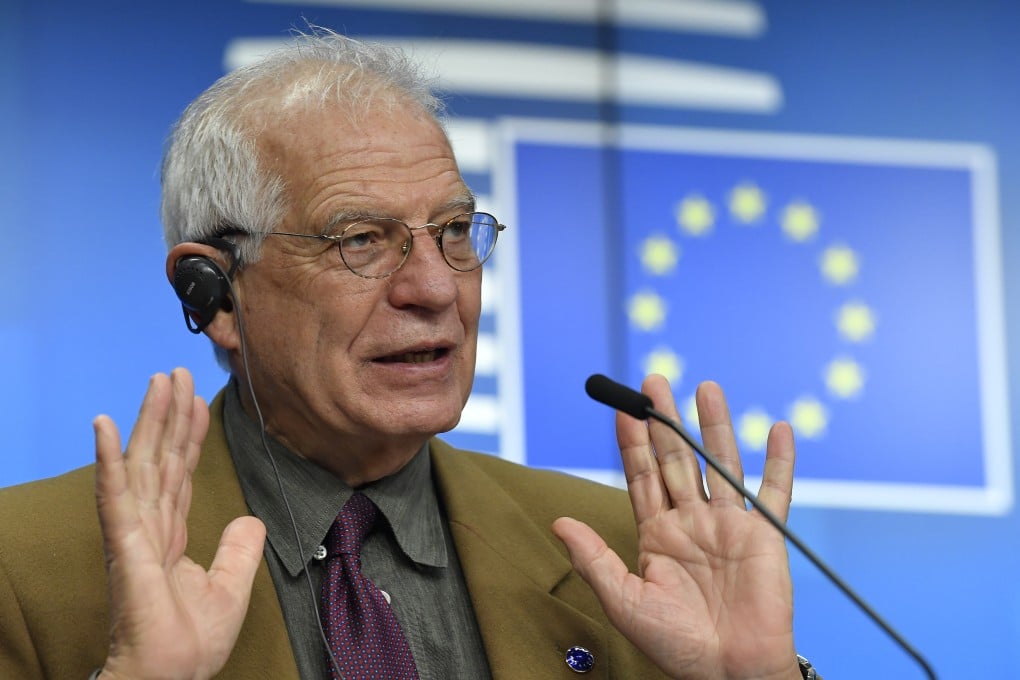EU and Britain decline, for now, to sanction Chinese officials involved in Hong Kong and Xinjiang actions
- European Union introduces a human rights sanctions programme, but foreign policy head avoids saying if it will be used against Beijing officials
- British minister for Asia, during parliament discussion of Hong Kong activist Joshua Wong’s imprisonment, says only that evidence is being collected

The European Union and Britain each on Monday ruled out immediate moves to impose sanctions on Chinese officials involved in what they called human rights violations in Hong Kong and Xinjiang – even as the US added new ones.
The EU Introduced what it called a “global human rights sanctions regime” – an institutional process that will let it target individuals, entities, states and non-state actors “responsible for, involved in or associated with serious human rights violations and abuses worldwide”, according to a statement.
But in his discussion of the programme, the EU’s foreign policy chief Josep Borrell repeatedly avoided saying whether he would act on a previous pledge to use the new legal power to punish Chinese officials who have suppressed Uygur Muslims in Xinjiang.
“Sanctions are triggered when a member state puts a proposal. For the time being no one has done it,” Borrell said, without acknowledging that the programme also empowered him to propose sanctions.

01:24
Hong Kong leader Carrie Lam says she gets around sanctions by collecting her salary in cash
On Monday the United States imposed financial sanctions and a travel ban on 14 Chinese legislators over their involvement in the imposition this summer of a national security law in Hong Kong, which aims to prevent, stop and punish acts identified as secession, subversion of state power, terrorism and foreign interference. Opposition politicians and critics warn it could be used to suppress dissent and erode freedom in the city.
In August the US first assessed sanctions on Hong Kong Chief Executive Carrie Lam Cheng Yuet-ngor, as well as the city’s current and former police chiefs and other top officials for what it said were their roles in curtailing freedoms in a crackdown on the territory’s pro-democracy movement.
